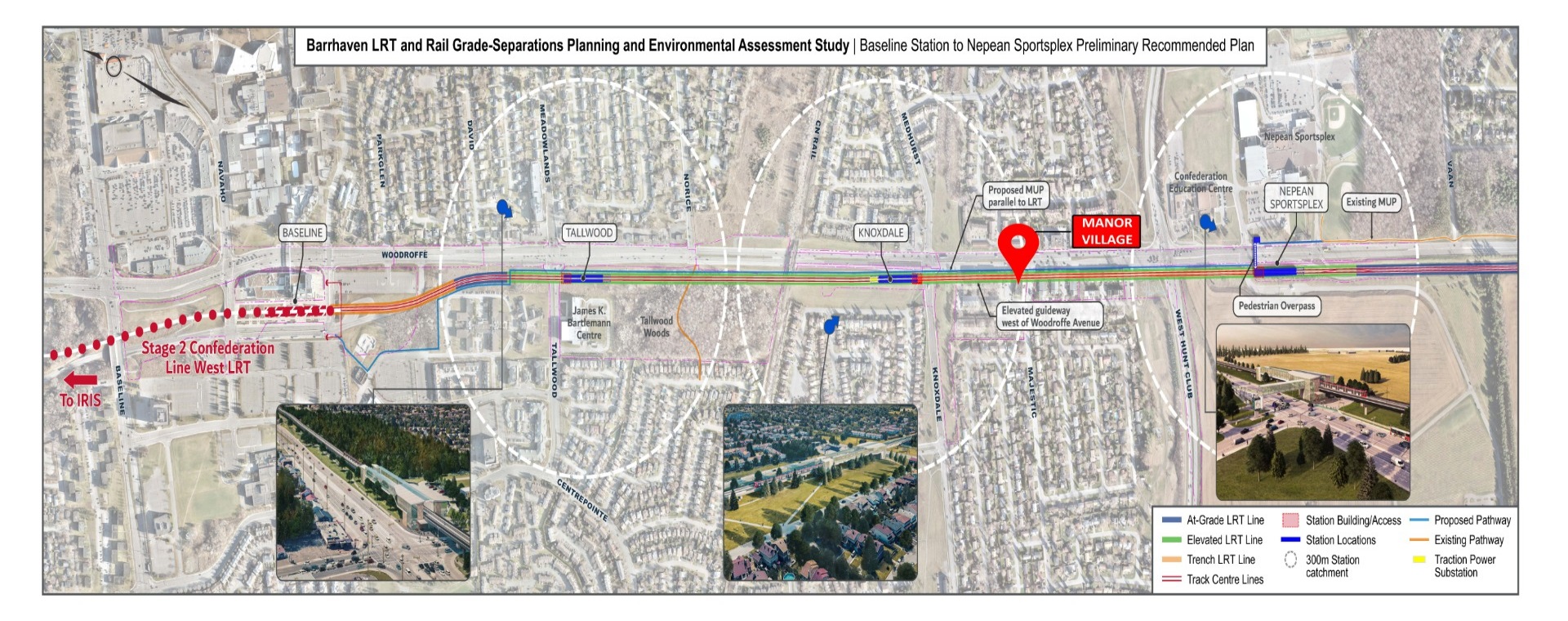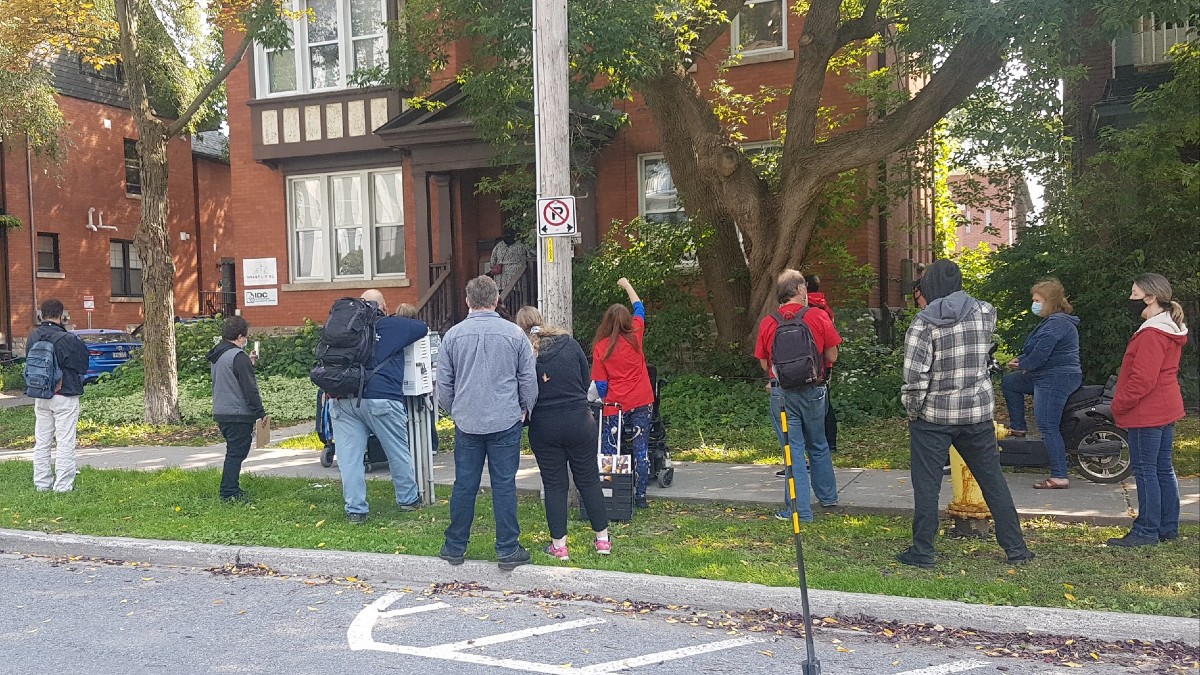Low-income tenants of an apartment complex in Nepean are increasingly uncertain about the future of their homes. That’s because the proposed Stage 3 LRT extension would cut directly through their building.
The 120-unit Manor Village is on the west side of Woodroffe Avenue, where the city has mapped out a 10-kilometre elevated light rail extension from Baseline Station to Barrhaven Town Centre. The extension would require the demolition of this property.
According to the proposal, the extension is favoured because it would cost less and take less time to construct. But it would also impact 120 of the 205 existing residential buildings in the area.

Lisa Bilow, a Manor Village tenant and a member of the housing advocacy group ACORN Ottawa, said she found the proposal “insulting.”
“It’s been very emotional,” she said. “There are people that have lived here for 20 years. A lot of these people grew up together.”
ACORN Ottawa has been petitioning the city against the proposed plan. In late September, it took to Twitter, urging ACORN members to fill out a message form which demanded the city recommend against the proposal. Public consultation for the extension closed Sept. 23.
Bilow said part of her concern is that she and other tenants won’t be able to find a new place to live if they’re displaced.
“We’d be losing our home,” she said. “How can you say there is an affordable housing crisis in Ottawa and then turn around and get rid of affordable housing?”
In January, Ottawa declared a housing and homelessness state of emergency in response to climbing housing costs and an overload of the city’s affordable housing wait-list, currently estimated at around 12,000 people.
In its proposal, the city said the affected dwellings could be redeveloped to accommodate residents displaced by the new line, but offered no specifics on how this would be achieved, nor any information on whether the new housing would be affordable.
In response, Coun. Jeff Leiper of nearby Kitchissippi ward, who sits on the transportation committee, said the possibility of displacement is concerning, but added that the housing needs of residents will be front and centre if the proposal goes ahead.
“I would actually be fairly confident that the city would be able to make a commitment to ensuring that folks are housed in equivalent or better housing in their own neighbourhood.”
He said there isn’t much precedent with LRT construction for accommodating displaced residents, but he said he is optimistic a comprehensive plan will be a priority.
The LRT extension won’t happen for several years, according to Frank McKinney, program manager for environmental assessments in transportation planning. In an emailed statement, he said the project still needs funding before it can move forward.
He added that the project’s study team is reviewing public feedback and will present recommendations to Council for approval in November.
But even though the project is several years off, the housing crisis presents concerns for housing advocates such as Kaite Burkeholder Harris, the executive director of the Alliance to End Homelessness Ottawa.
“My general feeling is that no one recognizes the level of urgency,” she said. “(The housing crisis) is not just affecting people who are low-income. Our housing costs have just increased consistently.”
She added that the city is losing affordable housing faster than it can be built.
These concerns, she said, are not given enough attention when construction could lead to displacement. “These are the sorts of things that often happen, where you get going into something and you don’t necessarily see these spin-off consequences.”
For Manor Village residents, a lack of transparency from their new landlord is also heightening their uncertainty.
On Sept. 1, the building was bought by local property management company Smart Living Properties, which owns more than 40 residential properties across the city.
Smart Living has received attention recently for issuing eviction notices to students, seniors and people with disabilities living in affordable housing on Osgoode Street in Sandy Hill. According to the uOttawa newspaper, The Fulcrum, the company said the evictions are needed so renovations could proceed.

Norma-Jean Quibell, co-chair of the Ottawa West Nepean Chapter of ACORN, said Smart Living hasn’t communicated any plans to Manor Village residents, which has raised concerns about the possibility of similar “renovictions” there.
“(Tenants) are worried about being removed from their homes and not being able to find the same kind of housing with similar rent,” she said. “They’re in a position where they don’t think they can afford any higher rent if they’re forced to move out.”
Recently, Manor Village residents delivered a letter to Smart Living, which included a demand for increased transparency and tenant consultations.
In a statement, Smart Living chief business officer Roland Gordon said the company intends to renovate vacant units as they become available. He added that there are no further development plans for the time being, until LRT plans are finalized.
He went on to say that Smart Living “is committed to open and transparent dialogue with tenants who are encouraged to contact the company directly with any questions or concerns.”




